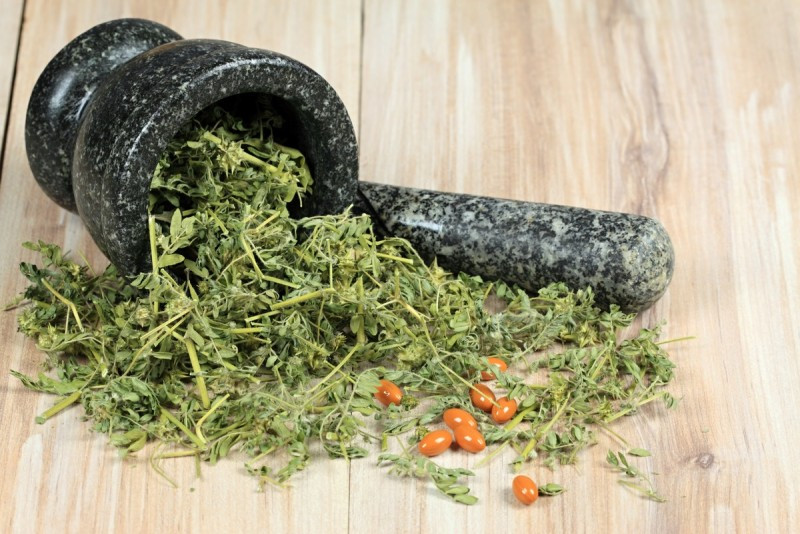Welcome to Part V of our alphabetized summaries of assorted nutrients and supplements, some of which are relatively unknown but worthy of your full attention. Today we focus on those beginning with the letters S through V. As always, before adding any of these to your dietary regimen, be sure to discuss your possible use of any of these products with your personal physician or other healthcare professional. You want to make sure they are suitable for your body and health and won't clash with any prescription medications you might be taking.
S: Saw Palmetto
Saw palmetto is a palm-like plant that grows as a tree or shrub, with berries that have long been a popular source of food and medicine for Native Americans. It is found throughout much of the southeastern U.S. along the Atlantic coast, stretching from South Carolina into Florida. For about 100 years or more, saw palmetto's berries have been used for males experiencing urinary tract issues as well to boost sperm production and enhance libido. Over the decades, health experts have further tapped into others of saw palmetto's bountiful benefits; for example, using it to
treat benign prostatic hyperplasia (BPH), a non-cancerous enlargement of the prostate gland. What experts have discovered is that saw palmetto contains plant-based chemicals effective for BPH as well as influencing the level of testosterone in the body while diminishing the presence of an enzyme that stimulates the growth of prostate cells. Some studies even suggest that saw palmetto might be effective in shrinking the size of the prostate gland.
T: Tribulus Terrestris
Like the previously mentioned saw palmetto, tribulus terrestris (TT), has a very long history of usage in treatments with natural remedies, but TT's history goes back thousands of years. A small, flowering plant, TT produces a fruit made up of five spiky nutlets. It has long been used to treat a variety of health issues ranging from sexual dysfunction to
kidney stones and beyond. Its robust healing and health-promoting properties have long had a prominent place in folk medicine, and has also been used for treating heart disease, cough, urination problems, and some breathing issues. But wait, there's more. TT's fruits have for quite some time found a place in traditional Chinese medicine, Among its many uses being the alleviation of swelling, eye issues, bloating, pink eye (conjunctivitis), headaches, and, yes, flatulence. It has also shown a capacity to improve libido, resolve sexual dysfunctional issues, reduce inflammation, and lower blood sugar.
U: Ubiquinol
Ubiquinol, an active form of CoQ10, is an enzyme responsible for more than 95 percent of a cell's energy as well as for
stimulating the manufacture of ATP (Adenosine Triphosphate) for the inner membrane of the mitochondria, thousands of which occupy each of the trillions of cells in the human body. Ubiquinol has one key distinction in the world of antioxidants: It is believed to be the lone known fat-soluble antioxidant produced naturally in the body. CoQ10/ubiquinol supports cells by helping them to properly function; otherwise, the health of our tissues and organs (as well as digestion, immunity, energy, etc.) is put in jeopardy. Worrisome symptoms of a deficiency of CoQ10/ubiquinol in the cells' mitochondria can include tiredness, fatigue, and even trouble concentrating. Piece it all together and it can be seen how ubiquinol is a micronutrient central to all your body's life processes, although our natural ability to produce CoQ10/ubiquinol begins to diminish after about the age of 20.
V: Vanadyl Sulfate
It is common public knowledge that if you want strong bones and teeth, drinking milk and foods containing calcium is a good place to start. What isn't as well known is the existence of a trace mineral, vanadyl sulfate, that is also needed for
growing and maintaining strong bones and teeth. But that's not the only role vanadyl sulfate plays in regulating and protecting our bodies. Its other uses include regulating insulin (by stimulating our cells to produce glucose faster), building muscle (by forcing proteins and amino acids into the muscle), reducing cholesterol, and, in past years, as treatment for tuberculosis. Note, too, that vanadyl sulfate works to reduce cholesterol levels by blocking enzymes in the liver, which enhances cardiovascular health.

